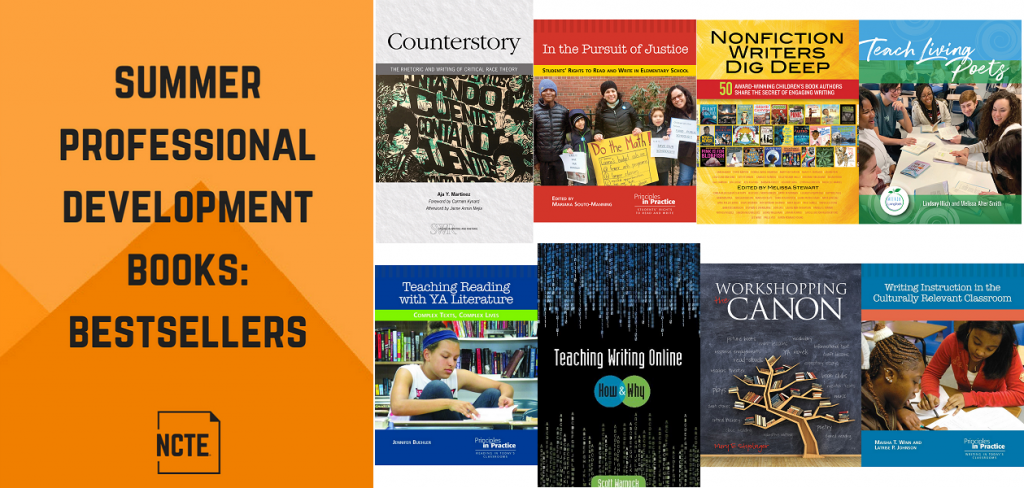Summer is an excellent time for recharging; it’s also a great time for finding new inspiration. NCTE members have written fabulous books on a range of topics you might find interesting, and we’ve pulled together a list of bestsellers for your review.
Counterstory: The Rhetoric and Writing of Critical Race Theory by Aja Martinez
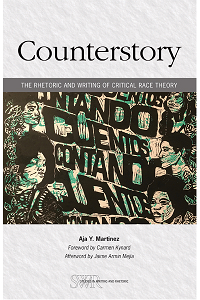 Humanities scholar Aja Y. Martinez makes a compelling case for counterstory as methodology in rhetoric and writing studies through the well-established framework of critical race theory (CRT), reviewing first the counterstory work of Richard Delgado, Derrick Bell, and Patricia J. Williams, whom she terms counterstory exemplars.
Humanities scholar Aja Y. Martinez makes a compelling case for counterstory as methodology in rhetoric and writing studies through the well-established framework of critical race theory (CRT), reviewing first the counterstory work of Richard Delgado, Derrick Bell, and Patricia J. Williams, whom she terms counterstory exemplars.
In the Pursuit of Justice: Students’ Rights to Read and Write in Elementary School edited by Mariana Souto-Manning
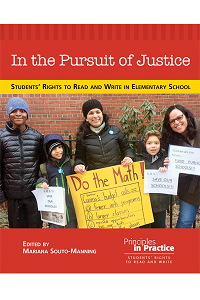 Promoting an equitable and inclusive understanding of literacy, Mariana Souto-Manning and her teacher contributors explore how elementary teachers can welcome the voices and languages of their students into their classrooms in their pursuit of reading and writing experiences that showcase children’s skills and practices.
Promoting an equitable and inclusive understanding of literacy, Mariana Souto-Manning and her teacher contributors explore how elementary teachers can welcome the voices and languages of their students into their classrooms in their pursuit of reading and writing experiences that showcase children’s skills and practices.
Nonfiction Writers Dig Deep: 50 Award-Winning Children’s Book Authors Share the Secret of Engaging Writing edited by Melissa Stewart
 Some of today’s most celebrated nonfiction writers for children share how their writing processes reflect their passions, personalities, beliefs, and experiences in the world. Editor Melissa Stewart offers a wide range of tips, tools, teaching strategies, and activity ideas to help students learn to craft rich, unique prose.
Some of today’s most celebrated nonfiction writers for children share how their writing processes reflect their passions, personalities, beliefs, and experiences in the world. Editor Melissa Stewart offers a wide range of tips, tools, teaching strategies, and activity ideas to help students learn to craft rich, unique prose.
Teach Living Poets by Lindsay Illich and Melissa Alter Smith
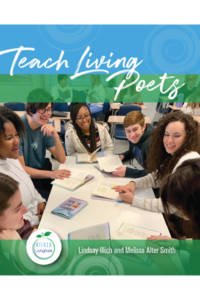 Teach Living Poets opens up the flourishing world of contemporary poetry to secondary teachers, giving advice on discovering new poets and reading contemporary poetry, as well as sharing sample lessons, writing prompts, and ways to become an engaged member of a professional learning community.
Teach Living Poets opens up the flourishing world of contemporary poetry to secondary teachers, giving advice on discovering new poets and reading contemporary poetry, as well as sharing sample lessons, writing prompts, and ways to become an engaged member of a professional learning community.
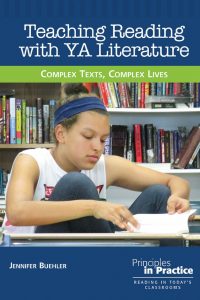 Jennifer Buehler shows how to implement a YA pedagogy—one that revolves around student motivation while upholding the goals of rigor and complexity. Buehler explores the three core elements of a YA pedagogy with proven success in practice: (1) a classroom that cultivates reading community; (2) a teacher who serves as book matchmaker and guide; and (3) tasks that foster complexity, agency, and autonomy in teen readers.
Jennifer Buehler shows how to implement a YA pedagogy—one that revolves around student motivation while upholding the goals of rigor and complexity. Buehler explores the three core elements of a YA pedagogy with proven success in practice: (1) a classroom that cultivates reading community; (2) a teacher who serves as book matchmaker and guide; and (3) tasks that foster complexity, agency, and autonomy in teen readers.
 Whether you are new to teaching writing online or are looking for a more comprehensive approach, this book will provide the ideas and structure you need.
Whether you are new to teaching writing online or are looking for a more comprehensive approach, this book will provide the ideas and structure you need.
Grounded in Warnock’s years of experience in teaching, teacher preparation, online learning, and composition scholarship, this book is designed with usability in mind. Features include How to manage online conversations; responding to students; organizing course material; core guidelines for teaching online; resource chapter; and appendix with sample teaching materials.
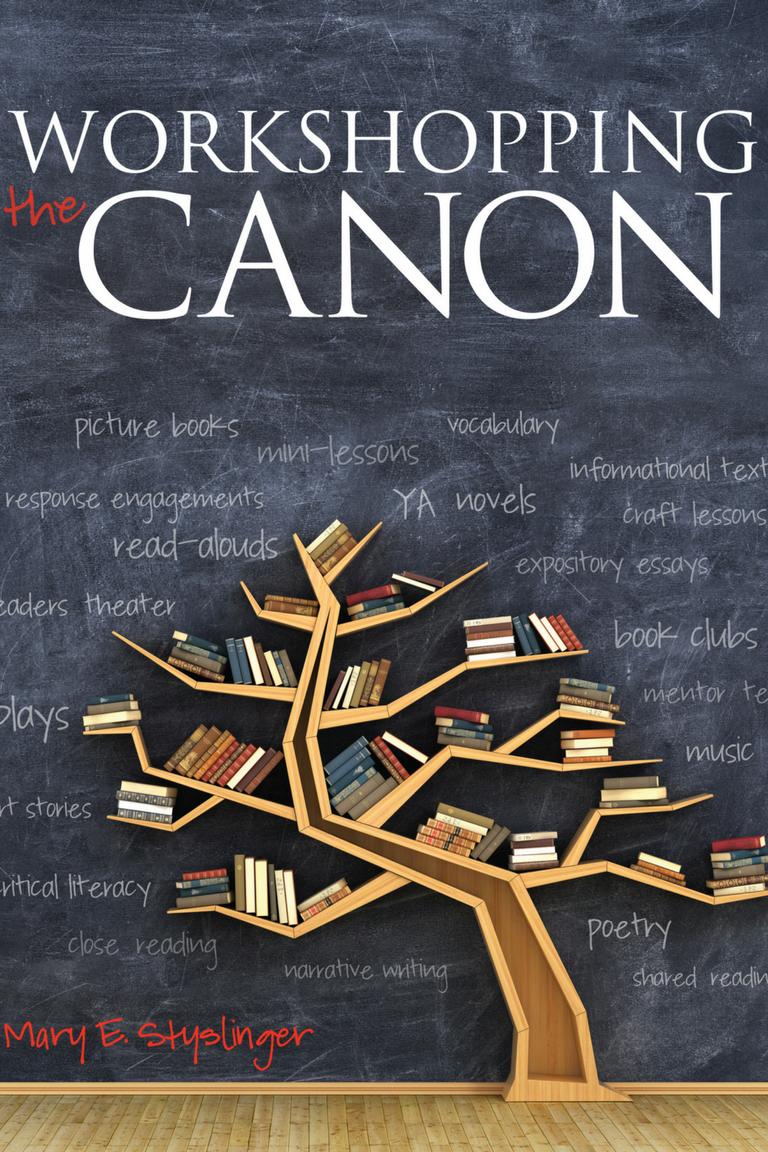 Workshopping the Canon introduces practicing and preservice English language arts teachers to a process for planning and teaching the most frequently taught texts in middle and secondary classrooms using a workshop approach. Demonstrating how to partner classic texts with a variety of high-interest genres within a reading and writing workshop structure, Mary E. Styslinger aligns the teaching of literature with what we have come to recognize as best practices in the teaching of literacy.
Workshopping the Canon introduces practicing and preservice English language arts teachers to a process for planning and teaching the most frequently taught texts in middle and secondary classrooms using a workshop approach. Demonstrating how to partner classic texts with a variety of high-interest genres within a reading and writing workshop structure, Mary E. Styslinger aligns the teaching of literature with what we have come to recognize as best practices in the teaching of literacy.
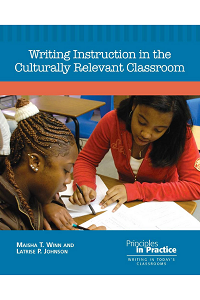
How can we reach all of our students—especially those who have been ignored and underserved in America’s classrooms?
Maisha T. Winn and Latrise Johnson suggest that culturally relevant pedagogy can make a difference. Although it certainly includes inviting in the voices of those who are generally overlooked in the texts and curricula of US schools, culturally relevant teaching also means recognizing and celebrating those students who show up to our classrooms daily, welcoming their voices, demanding their reflection, and encouraging them toward self-discovery.

